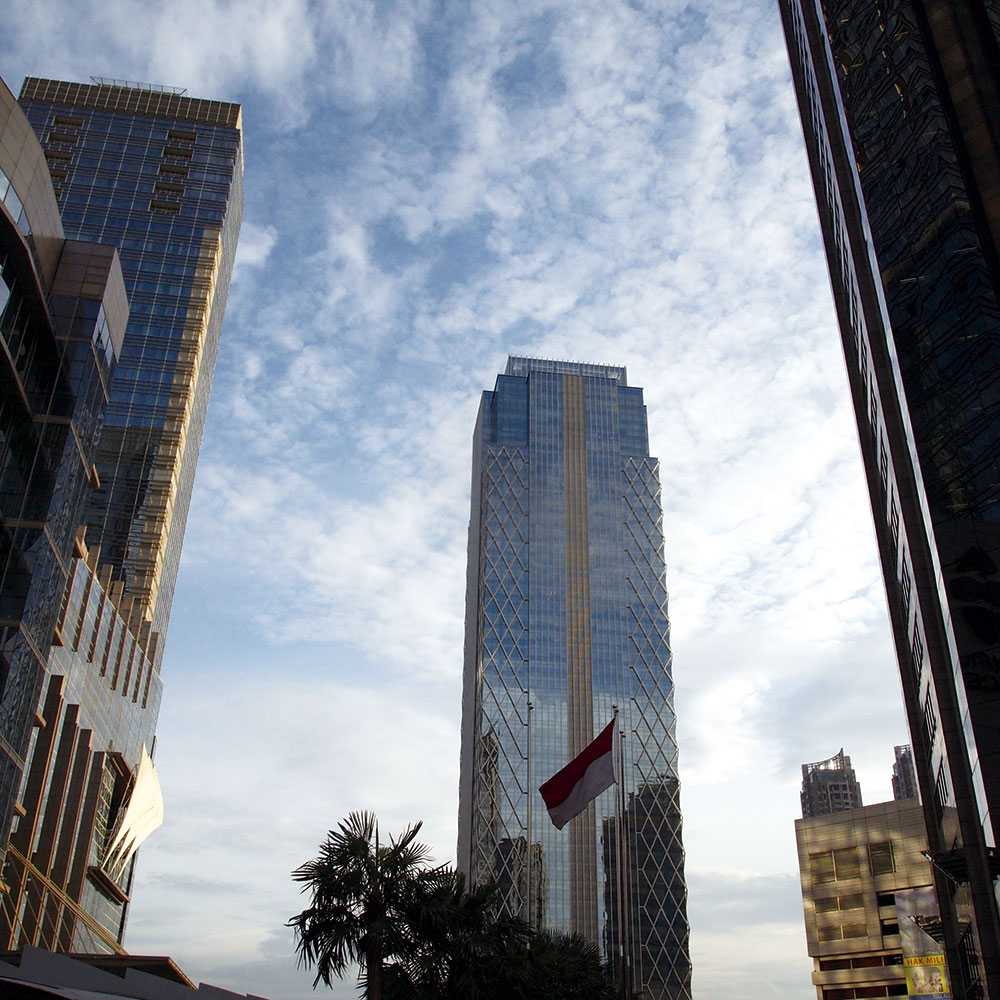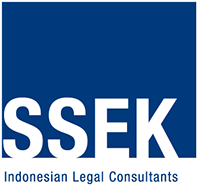 Indonesia’s Law No. 24 of 2009 regarding the National Flag, Language, Emblem and Anthem (the Language Law) was very likely not one of the most visited regulations until the West Jakarta District Court rendered a groundbreaking decision in 2013 (i.e. West Jakarta District Court Decision No. 451/Pdt.G/2012/PN.Jkt.Bar (Court Decision No. 451) that immediately multiplied the level of scrutiny by both business players and lawyers of the relevant provision under the Language Law concerning the mandatory use of the Indonesian language in agreements.Article 31(1) of the Language Law stipulates:
Court Decision No. 451 ruled that a commercial agreement with an Indonesian party that was not executed in the Indonesian language is null and void because it violates Article 31(1) of the Language Law. The District Court reasoned that the mandatory requirement to use Indonesian in an agreement was a clear and objective element of the legality of an agreement under the Indonesian Civil Code. In the first quarter of 2014, the High Court of Jakarta affirmed the decision of the West Jakarta District Court. The High Court of Jakarta decision was then appealed to the Supreme Court and last year the Supreme Court issued Decision No. 601 K/PDT/2015, which rejected the appeal and upheld the High Court’s affirmation of the Jakarta decision. Unfortunately, the Supreme Court decision was still not yet publicly available as of early 2016 and hence a comprehensive analysis cannot yet be made, although it would not be surprising if the Supreme Court merely upheld the High Court decision without providing a full analysis. Also, as a matter of Indonesian law, the Supreme Court decision is not yet final and binding because the losing party may resort to further appeal remedies. It is also to be noted that Indonesia does not follow the stare decisis principle familiar to common law systems, so Indonesian courts are not bound by previous court decisions. To obtain as much legal certainty as possible, business players have chosen to ensure that their agreements with an Indonesian party are executed only in the Indonesian language or in the Indonesian language and a foreign language, most commonly English. It is inevitable that in cross-border transactions the underlying agreement will not be in the Indonesian language alone, as a foreign party would not be comfortable with a language it does not understand. Also, it will want the language it does understand to be the prevailing language. In most cases, the second language is English, as the prevailing lingua franca for commercial transactions. The Language Law explicitly allows execution of an agreement in more than one language (provided that one of the languages is the Indonesian language) and does not impose an obligation to use the Indonesian language as the prevailing language. While English is most often chosen as the prevailing language, there is a risk in this approach, as the Language Law does not explicitly, or otherwise, provide that a foreign language will prevail over the Indonesian version. It is possible, therefore, that a future court could decide that the Indonesian language must prevail. An additional but perhaps unavoidable disadvantage from a commercial perspective of a dual-language document is the additional time and cost incurred to properly translate the agreement into Indonesian. Further, as a legal document is involved and the translation must be accurate, reliance on a translator might be insufficient, especially when the document is complex. In that case, a lawyer may be called on to either prepare or review the translation. The Indonesian version is very important, especially if any dispute is to be resolved in Indonesia. Whatever is said about prevailing languages, any court in Indonesia, whether on original jurisdiction or to enforce a foreign arbitral award, will naturally read the Indonesian version first and one would then have to dislodge the court from a position taken based on the Indonesian version in the event of any inconsistency. Finally, in addition to having transaction documents in dual languages, the incorporation of one or more provisions related to Language Law issues in the underlying agreement is also a prevalent practice. Parties try to remove legal uncertainty by formulating provisions that address language issues that may arise in the future and safeguard their interests against the possible arguments that could be invoked by their counterparts to challenge the enforceability of the agreement. Unfortunately, there is a paucity of other court decisions dealing with this issue and other provisions under the Language Law. Furthermore, as of this date, the implementing presidential regulation regarding the mandatory use of the Indonesian language in an agreement with an Indonesian party, as mandated by Article 40 of the Language Law, has not been promulgated. ––––––––––– |
Indonesia
Related Articles by Firm
Cryptoassets in Indonesia: Regulation Clearing Way for Trading of 229 Cryptoassets Issued
Indonesia’s Commodity Futures Trading Supervisory Body (Badan Pengawas Perdagangan Berjangka Komoditi or “Bappebti”) has issued the long-awaited list of cryptoassets that can be legally traded in Indonesia.
Indonesian government imposes VAT on imported digital goods and services
The tax particularly targets intangible goods and services provided by foreign tech companies that lack a physical presence in Indonesia.
Indonesia’s New Negative Investment List
Presidential Regulation No. 44 of 2016 regarding the List of Business Fields That Are Closed and Business Fields That Are Conditionally Open...
Indonesia Update
New Body Set Up to Resolve Disputes in the Construction Sector; and a Change to the Mediation Process ...
Indonesia’s Anti-Monopoly Law: Changes Ahead?
Since its enactment in 1999, Indonesia's Anti-Monopoly Law has never been amended. The New Anti-Monopoly Law has been prioritized for enactment by the Government of Indonesia. Here's a look at some proposed major changes.
Non-compete agreements and protecting confidential information
Indonesian labour and employment laws do not expressly impose or regulate non-competition obligations ...
Indonesian regulatory framework for real estate investment funds
In late 2015, the Indonesian Minister of Finance issued Regulation No. 200/PMK.03/2015 regarding Tax Treatment of Taxpayers and Taxable Entrepreneurs ...
Indonesia Widens Door to Foreign Investment
Indonesia released its tenth economic policy package on February 12, 2016, with a focus on boosting foreign direct investment and protecting small and medium enterprises and cooperatives.
Indonesian Import License Regulations
The Indonesian Minister of Trade issued two new regulations which amended importation guidelines effective 1 January 2016.
Ownership of homes or residences by foreigners in Indonesia
Indonesia issued Government Regulation No. 103 of 2015 regarding the Ownership of Homes or Residences by Foreigners Residing in Indonesia ...
When employees leave: non-compete agreements and protecting confidential information
Indonesian labour and employment laws do not expressly impose or regulate non-competition obligations of employees with the exception of the Chief Representative ...
New regulations bring big changes to the Indonesian manpower sector
Two recently released regulations have introduced important changes to the Indonesian manpower sector. While the changes should generally be welcomed by the business ...
Update: Guide to Background Checks in Indonesia
Background checks on employees are not expressly regulated by Indonesian employment laws but certain background checks are subject to the applicant or employee's consent.
Foreign investment restrictions in Indonesia
Restrictions on foreign shareholders in Indonesia are set out in the most recent Negative Investment List, contained in Presidential ...
New Manpower Regulation Eliminates Controversial Work Permit Requirements in Indonesia
Indonesia eases requirements for work permits of expatriates working in the country.
Establishing a presence from abroad
The most common option for an overseas company as a foreign investor to establish a presence in Indonesia is by setting up a limited liability company (Perseroan Terbatas or PT) with foreign ownership ...
Regulatory framework for insurance business
The main legislation for insurance and reinsurance business in Indonesia is the newly enacted Insurance Law, issued on October 17, 2014. The new Insurance Law ...
Indonesia: New Manpower Regulation
Foreign domiciled directors and commissioners must have Indonesian work permit ...
Indonesian Rules on E-Signatures
E-signatures in Indonesia are regulated by Law No. 11 of 2008 regarding electronic information and transactions (Law No. 11/2008) and Government Regulation No. 82 of 2012 regarding the implementation ...
Negative investment list vs. cabotage principle
In furtherance of Indonesia’s commitment to welcome the implementation of the ASEAN Economic Community (AEC) in 2015, ...
Local Authority Curbed in Indonesian Mining Sector
The Indonesian Government appears to be getting serious about stripping local authorities of the power to issue mining licenses.
Mandatory use of Rupiah in Indonesia
Indonesia’s central bank, Bank Indonesia (BI), recently issued BI Regulation No. 17/3/PBI/2015 regarding the mandatory use …
Indonesia: New Regulation on Public-Private Partnerships (PPP)
Public-private partnerships (“PPPs”) interest infrastructure investors in Indonesia for a number of reasons ...
Compliance road map for companies
Compliance is an important issue for foreign investment companies doing business in Indonesia. As international organisations, foreign investment companies are not only …
Food export regulations and licences
Export activities in Indonesia can be carried out by individuals, institutions and business entities. Export goods are classified as free export goods, which are goods that have no restrictions or prohibitions on …
Franchising rules and regulations
With a population of over 250 million, Indonesia is an attractive country for investors, particularly those interested in the distribution, retail and franchise sectors. …
Indonesia Employment Law: Quarterly Review
Update for the 4th quarter of 2014 including: Increased Protection for Outsourced Workers; New Rules on Hiring Expatriates; and Regulations for those Employed in Oil and Natural Gas Business Activities...
New Indonesian Geothermal Energy Law
Indonesia is one of the world’s most volcanically active countries and among the countries with the greatest geothermal energy potential. Dwindling production of traditional energy …
Foreign investment in Indonesian real estate
Indonesia’s Agrarian Law provides that foreigners can only acquire right to use (hak pakai) title for land if they reside in Indonesia. If foreign investors wish to engage in …
Employment Law: Hiring expats, holidays and more
The Indonesian Government has issued a Regulation on the employment of foreign workers and the implementation of education and training programs for Indonesian companion employees. Presidential …
New Negative List Introduces Changes to Health Investment in Indonesia
The Indonesian Government has released a new list of business fields that are closed to investment and business fields that are conditionally open to investment …
Indonesian-language label requirements
The Minister of Trade has updated Regulation No. 67/M-DAG/PER/11/2013 regarding the Obligation to Affix Indonesian-Language Labels on Goods with the issuance of Minister of Trade Regulation No. 10/M-DAG/PER/1/2014 …
Corporate liability for corruption
Anti-corruption compliance is rightly a focus of companies operating in Indonesia. One of the more interesting questions for such companies, particularly foreign investment companies, is whether the company …
Indonesia’s New Negative Investment List
The Indonesian Government has issued a New Negative List that determines which business fields are open, fully or partially with conditions, to investment, including foreign investment. The New Negative List, issued …
New Trade Law and its effect on business
Indonesia’s House of Representatives (Dewan Perwakilan Rakyat or DPR) recently passed into law a long-awaited trade bill. The new Trade Law will act as an underlying regulation for other trade-related …
Processing minerals for export now mandatory
After a long and contentious discussion involving many interested parties, the Government of Indonesia issued a regulation that bans the …
Indonesia’s Language Law and business agreements
In a landmark decision on June 20th, 2013, the West Jakarta District Court annulled a Loan Agreement because it was executed in English …
Indonesian Court Annuls Loan Agreement on Language Law: What Does It Mean for Your Agreements?
In a landmark decision on June 20, 2013, the West Jakarta District Court annulled a Loan Agreement entered into between a local borrower and an offshore lender because it was executed in English only ...
Keeping up with shifting foreign investment rules
Less than six months after issuing new investment guidelines and procedures, Indonesia’s Capital Investment Coordinating Board (BKPM) has …
New divestment rules for mining companies
On September 13th, 2013, the Minister of Energy and Mineral Resources (MEMR) issued MEMR Regulation No. 27 of 2013 regarding …
New import rules for cell phones in Indonesia
Indonesia’s Minister of Trade has issued a new regulation that specifically governs the importation of, among other items, cellular telephones …
BKPM introduces new investment rules in Indonesia
Indonesia’s Capital Investment Coordinating Board (BKPM) has issued BKPM Regulation No. 5 of 2013 regarding Guidelines and Procedures …
Related Articles
Related Articles by Jurisdiction
Recent changes to Public Private Partnership law in Indonesia
Chris Naziris of MKK Law Indonesia examines Public Private Partnerships as an alternative means by which development of infrastructure can be managed and promoted. Recent changes to the legislation in Indonesia include financial incentives designed to boost participation ...
Indonesia’s new construction bill
In December 2016, Indonesia’s Parliament passed the Construction Services Bill to replace existing legislation on construction services, Law No. 18 of 1999 on Construction Services ...
Indonesia’s Language Law and business agreements
In a landmark decision on June 20th, 2013, the West Jakarta District Court annulled a Loan Agreement because it was executed in English …
Latest Articles




































 SSEK Legal Consultants
SSEK Legal Consultants Rusmaini Lenggogeni
Rusmaini Lenggogeni Denny Rahmansyah
Denny Rahmansyah







